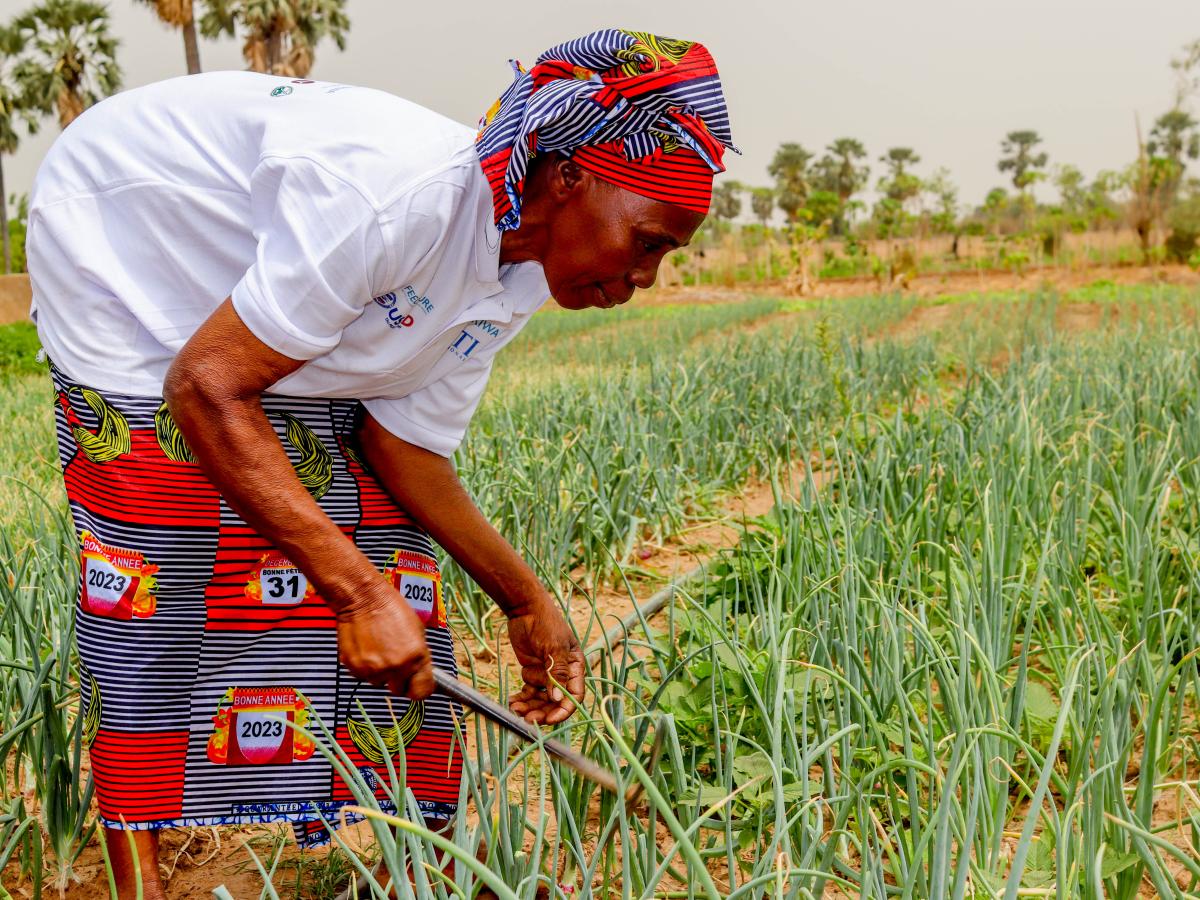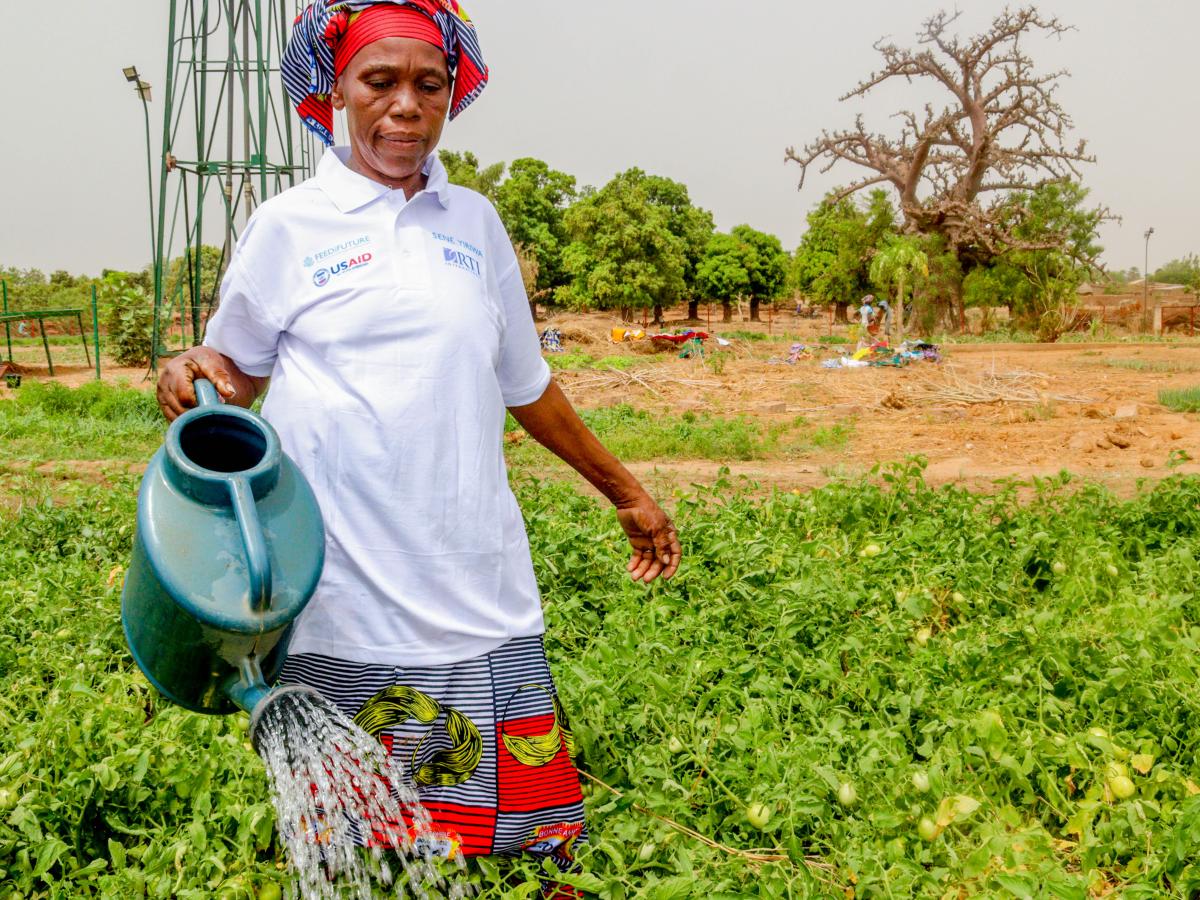Transforming Agriculture to Change Lives
Agriculture is the cornerstone of Mali's economy. It employs 80% of the population and accounts for more than 35% of GDP (FAO, 2017). Yet the country's agricultural potential remains largely untapped, as many practices are outdated and inefficient, resulting in reduced income and diminished outputs for farmers. Seeing this, the Feed the Future Mali Sene Yiriwa-South project is introducing new techniques and technologies to improve not only farming practices and productivity, but also farmers’ lives.
Improving the profitability of market gardening is critical for the fight to improve incomes and quality of life for farmers. Market gardening is one of the main sources of income in rural areas, especially for women, 49,5% of whom live in rural Mali. Last year, the project supported producer organizations in the Sikasso, Bougouni, and Koutiala regions, reaching over 11,002 market gardeners (including 6,647 women and 1,685 youths) with innovative trainings and new techniques.
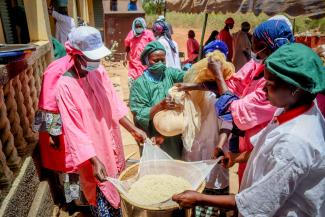
The benefits of this work don’t stop at improved income however — in addition to supporting production, the project is also making sustainable changes on the processing side, training female producers in processing, conservation, and packaging techniques. These efforts not only reduce post-harvest losses, but also increase the nutritional (and market) value of the crops. This is no small addition in a nation where the nutritional situation remains dire both at national and regional levels. According to the standardized monitoring and assessment of relief and transition (SMART) 2023 survey, 11.1% of the population suffers from Global Acute Malnutrition (GAM) and 2.1% from Severe Acute Malnutrition (SAM). While the situation in Sikasso has improved slightly, with 1.1% suffering from SAM and 8.2% from GAM, these numbers represent thousands of people still dying unnecessarily from malnutrition.


Prior to these interventions, farmers sowed their nurseries by hand without spacing, which, in addition to being labor intensive and inefficient, left crops exposed during the rainy season. The new techniques introduced best practices for preparing vegetable beds during both rainy and dry seasons and instruction on how to space plants between and within bed rows to ensure maximum crop output, as well as how to micro-dose fertilizer, construct plant nurseries, transplant seedlings, and prepare biopesticide using local neem seed oil.
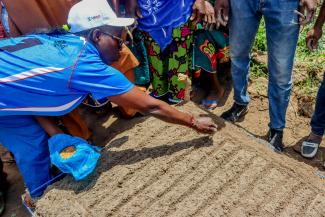
Benkadi, an all-women cooperative organization with 394 members from the village of Signé, Koutiala commune, were able to apply the new techniques, which increased the cooperative’s shallot production from 3 to 5 tons over the year. Benkadi cooperative member Djenabou Koné increased her shallot production by 225% using the new instructions about spacing, which revolutionized her ability to optimize water resources. As Koné explained, “We were trained on how to properly make nurseries by enclosing them with a mosquito net. They also showed us how to make planks in the dry season. These types of beds retain moisture. In 2024, these trainings were put into practice. I made shallot in 5 beds of 5m by 1m. I had 18 kilograms in each bed. In previous years it was 8 kilograms per bed.”
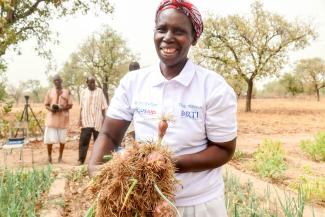
Banife Dembele from the Suturaton cooperative in the village of Nampossela (Koutiala region) doubled his shallot yield and tripled his tomatoes using these techniques. “We have been market gardening for six years and this year we reached a significant record (2024). In 2023, my shallot revenue was 69,000 CFA ($115), which doubled this year. My sale of tomatoes went from 25,000 CFA ($42) to 75,000 CFA ($125),” Dembele proudly declared. New practices are improving farmer’s incomes and positively changing their livelihoods.
“My harvest is divided into two parts. I sell 50% to cover my family's expenses, such as my children's schooling, my young daughters' wedding trousseau, etc. The remaining, I use it to feed the family. This new income scheme improves my family dietary intake and prevents my children from suffering from malnutrition.”
Banife Dembele
